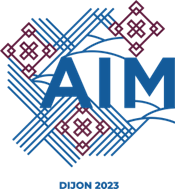Thematics, GTAIM & TRACKS > Digital innovation and disruptionDigital innovation and disruption
These innovations may sometimes base their existence on one or more disruptive technologies. But they can also emerge without recourse to cutting-edge technologies. They can even do so very often: the history of disruptions in the digital world is marked by a large number of startups that have succeeded in turning entire markets upside down without needing to base their value propositions on technological disruptions. This is for example the case of Booking (Thomke and Beyersdorfer, 2018), Airbnb (Boswijk, 2017) or Doctolib (Habib and Loup, 2019), whose main asset is a website. Faced with these phenomena of disruption 'from below' (Schmidt and Druehl, 2008), established companies and new entrants must adjust their IS. Players must therefore demonstrate 'digital resilience' (Sakurai and Chughtai, 2020). In many of the cases reported, the evolution of IS is materialised by a frank transformation of their production, design, distribution and collaboration processes, materialising new forms of IS infrastructure (Acquatella et al., 2021). Companies are thus changing their relationships with a plurality of stakeholders (partners, customers, suppliers, distributors, etc.), which has the effect of making them change their organisational state, for example into a platform model (Rai et al., 2019). Through these transformations companies can thus attempt to expand into new markets by leveraging a new value architecture. This track proposes to examine the challenges of digital resilience from the perspective of the disruptions that digital innovations cause within organisations and the IS infrastructures that make them up. The aim is to study how digital resilience is planned and/or built both at the level of IS and at the level of the organisational dynamics associated with it. This is in order to cope with the growing threat of disruption in all markets (Godé and Pascal, 2021) but also to develop resources that allow us to be in a potential disruptive position. There are many research issues linked to the question of digital resilience in contexts undergoing digital transformation. We propose some of them, without being exclusive or exhaustive.
Track leaders : Thomas Houy - Télécom Paris (thomas.houy@telecom-paris.fr) François Acquatella - University of Limoges (francois.acquatella@unilim.fr)
Bibliography
Boswijk A. (2017) "Transforming business value through digitalized networks: A case study on the value drivers of Airbnb",Journal of Creating Value, Vol. 3, n°1, pp. 104-114. Godé C. and Pascal A. (2021), "La résilience digitale : une notion à explorer", Management et Datascience, Vol. 5, n°5. Habib J. and Loup P. (2019), "Quand l'adoption d'une application perçue comme anodine engage une transformation profonde du système de santé : le cas de Doctolib", XXIVème Association Information & Management AIM 2019. Rai A., Constantinides P., & Sarker S. (2019), "Next-Generation Digital Platforms: Toward Human-AI Hybrids", MIS Quarterly, Vol. 43, No. 1. Sakurai M., & Chughtai H. (2020), "Resilience against crises: COVID-19 and lessons from natural disasters",. European Journal of Information Systems, Vol. 29, No. 5, pp. 585-594. Schmidt G. M. and Druehl C. T. (2008), "When is a disruptive innovation disruptive?", Journal of product innovation management, Vol. 25, n°4, pp.347-369. Thomke S. and Beyersdorfer D. (2018), "Booking.com", Harvard Business School Case. |


